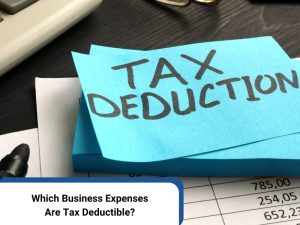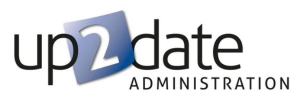Which Business Expenses Are Tax Deductible?

Running a small business is no walk in the park. There’s a lot to juggle – from managing staff to keeping your customers happy. And then there’s the dreaded tax season. But don’t stress! Understanding tax deductions for a small business can significantly reduce your tax bill.
What are tax deductions for small businesses?
Tax deductions are costs you can subtract from your taxable income. This means a lower tax bill. For small business owners, claiming eligible expenses can make a big difference to your bottom line.
Here are some standard tax deductions:
- Operating costs: things like rent, utilities, and office supplies.
- Employee expenses: wages, superannuation, and training costs.
- Vehicle expenses: if you use your car for business.
- Travel costs: including flights, accommodation, and meals.
- Marketing and advertising: costs to promote your business.
Can you claim all business expenses as tax deductions?
Wishful thinking! Not all business expenses qualify for tax deductions. To be deductible, an expense must be:
- Ordinary: everyday and accepted in your industry.
- Necessary: required for running your business.
- Directly related to earning your income.
How do you know if an expense is deductible?
Determining if an expense is deductible can be tricky. The Australian Taxation Office (ATO) has guidelines, but keeping detailed records is always a good idea. These records should show:
- What the expense was for.
- When the expense was incurred.
- How much does the expense cost?
- Who you pay.
Which business expenses qualify for tax deductions?
There’s a wide range of business expenses that might be tax deductible. Here are some examples:
- Office expenses: Rent, utilities, internet, phone, stationery, and cleaning supplies.
- Equipment: Computers, printers, furniture, and tools (you might claim depreciation).
- Vehicle expenses: Fuel, registration, insurance, repairs, and depreciation.
- Travel expenses: Accommodation, meals, and transportation costs for business trips.
- Advertising and marketing: Costs for promoting your business, like website development, advertising, and promotional materials.
- Employee expenses: Wages, salaries, superannuation, and employee benefits.
- Professional fees: Accountant, lawyer, and consultant fees.
- Insurance: Public liability, professional indemnity, and business interruption insurance.
Can you deduct home office expenses?
If you work from home, you can claim a deduction for some of your home running costs. To do this, you must identify a workspace and meet certain conditions.
Here’s what you might be able to claim:
- A portion of your rent or mortgage interest.
- A portion of your utilities (electricity, gas, and phone).
- A portion of your home insurance.
- Depreciation on home office equipment.
Are there specific tax deductions for home-based businesses?
There are some additional tax deductions available for home-based businesses, such as:
- Home office expenses (as mentioned above)
- Council rates
- Land tax
How do you claim tax deductions for your small business?

Claiming tax deductions can help you save money on your tax bill, but it’s essential to do it correctly. Here’s a breakdown of the steps involved:
- Keep detailed records: Maintain a comprehensive record of all business expenses. This includes receipts, invoices, bank statements, and other documentation supporting your claims.
- Organise your records: Create a system to organise your financial documents. This could be a digital filing system or physical folders.
- Understand the rules: Familiarise yourself with the Australian Taxation Office (ATO) guidelines on deductible expenses.
- Separate business and personal expenses: Clearly distinguish between costs related to your company and those for personal use.
- Use accounting software: Consider using accounting software to help you track your income and expenses efficiently and streamline payroll with automation.
- Seek professional advice: If you need clarification on which expenses are deductible, consult a registered tax agent.
- Prepare your tax return: When it’s time to file your tax return, accurately report your deductible expenses and attach supporting documentation.
Following these steps and maintaining meticulous records can increase your chances of claiming all eligible tax deductions and reducing your tax liability. To get more detailed information, you can learn about tax deductions on the ATO website, which provides comprehensive guidelines and updates.
What happens if you claim incorrect tax deductions?
Claiming incorrect tax deductions can have serious consequences. Here’s what will happen:
- Penalties: The ATO can impose fines if they believe you intentionally claimed incorrect deductions. These penalties can range from a percentage of the tax you owe to a specific dollar amount.
- Interest charges: You may be charged interest on the unpaid tax amount.
- Amended tax return: You might need to amend your tax return to correct the error. This can be time-consuming and stressful.
- Audit: The ATO may conduct an audit to investigate your claims. This can involve providing additional documentation and answering questions.
To avoid these issues, it’s crucial to be honest and accurate when completing your tax return. If you need clarification about claiming a particular deduction, seek professional advice from a registered tax agent.
Do you need professional help to manage your business tax deductions?

Navigating the complex world of tax deductions can be overwhelming, even for seasoned business owners. While many deductions can be claimed independently, seeking professional help can offer significant advantages.
Here’s why you might consider hiring a registered tax agent:
- Expertise: Tax laws constantly change, and agents stay updated on the latest rules and regulations.
- Time-saving: Preparing and lodging a tax return can be time-consuming. A tax agent can handle the paperwork and calculations for you.
- Maximised deductions: Tax agents are skilled at identifying potential deductions you might overlook.
- Peace of mind: Knowing that your tax affairs are in the hands of a qualified professional can provide peace of mind.
- Audit protection: If the ATO conducts an audit, a tax agent can represent your interests and provide the necessary documentation.
Investing in professional tax advice can save money, reduce stress, and ensure compliance with tax laws.
Conclusion
Understanding which business expenses are tax deductible can save you money. By keeping detailed records and staying up-to-date with tax laws, you can increase your chances of claiming everything you’re entitled to. Remember, claiming incorrect deductions can have serious consequences.
Let Up2Date Administration help
Navigating the complexities of small business tax can be stressful. That’s where Up2Date Administration comes in. We offer comprehensive bookkeeping services tailored to small businesses like yours. Let us handle the number crunching while you focus on growing your business. Contact Up2date Administration today for tax assistance.
